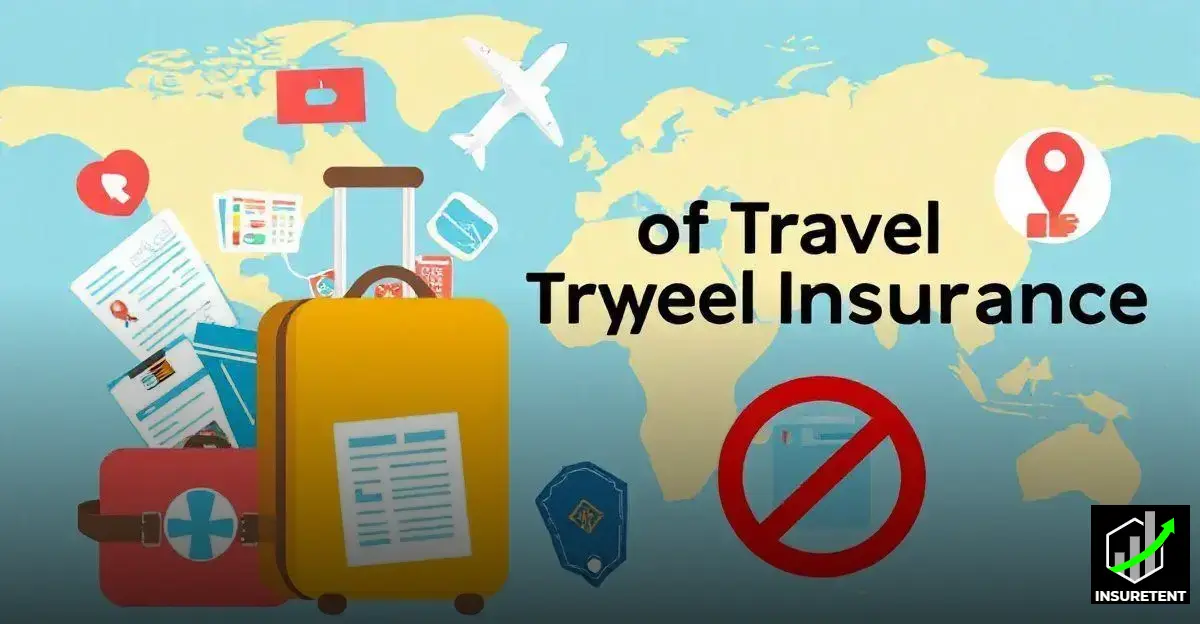Travel insurance is a crucial aspect of every journey, ensuring your safety and peace of mind while exploring new destinations.
It covers unexpected situations like trip cancellations, medical emergencies, and lost luggage.
Knowing what travel insurance entails can help you make informed decisions, protecting your investment and health during international adventures.
What is Travel Insurance?
Travel insurance is a safety net for travellers, providing essential coverage against unexpected events. It protects you from financial losses due to unexpected occurrences such as trip cancellations, medical emergencies, lost luggage, or flight delays. Understanding what travel insurance includes is vital to making informed decisions before venturing on your journey.
There are various types of travel insurance, including medical coverage which helps cover health costs while abroad, and trip interruption insurance which can reimburse non-refundable travel costs if your trip is cut short. Additionally, baggage insurance protects against the loss or theft of your personal belongings.
When selecting a travel insurance plan, consider your specific needs, such as your destination, health condition, and planned activities. Some plans may also offer coverage for adventure sports or cruise travel, which can be advantageous depending on your trip.
Being aware of the exclusions, such as pre-existing medical conditions, is crucial as this can affect your coverage. Always read the policy details carefully to ensure you understand what is included.
In summary, having travel insurance not only gives you peace of mind but also financially protects you against the unpredictable aspects of travel.
Types of Travel Insurance Plans

There are several types of travel insurance plans available to cater to different needs. Understanding these can help you select the right plan for your journey.
Medical travel insurance is essential for covering health-related costs while abroad. It can include emergency medical care, hospital stays, and repatriation in case of serious illness or accident.
Trip cancellation insurance reimburses you for non-refundable expenses if you need to cancel your trip due to unforeseen circumstances, such as a family emergency or severe weather.
Trip interruption insurance provides similar coverage if your travel plans are disrupted after departure.
Baggage insurance protects you against lost, stolen, or damaged luggage, ensuring you aren’t left without your belongings while traveling.
Additionally, adventure sports coverage is available for those planning on participating in risky activities like skiing or scuba diving.
Always read the policy details thoroughly to understand what is covered and any exclusions that may apply.
Why You Need Travel Insurance
Travel insurance is essential for every traveller as it provides safety and financial protection against unforeseen events.
It covers unexpected situations, like trip cancellations, medical emergencies, and lost baggage.
Having travel insurance not only protects your investment but also ensures peace of mind while exploring new destinations.
Emergencies can happen during trips, and travel insurance acts as a safety net.
It can help cover medical costs if you fall ill abroad, allowing you to seek immediate care without worrying about the expenses.
Furthermore, if your trip is interrupted or cancelled due to factors beyond your control, travel insurance can reimburse you for the lost costs, making it a smart choice for peace of mind.
Understanding the importance of having travel insurance can help you travel with confidence, knowing you are secured against the unexpected.
How to Choose the Right Travel Insurance

Choosing the right travel insurance can be daunting, but it is essential for safeguarding your trip. Start by assessing your personal travel needs. Are you going on a short holiday or a long adventure? Understanding the duration of your trip and your destination is vital.
Consider your health as well; if you have pre-existing conditions, look for plans that cover them. Next, compare different policies. Check what each plan covers: medical emergencies, trip cancellations, and baggage loss. Don’t forget to read the fine print, as this reveals crucial exclusions.
Also, think about your activities during the trip. If you plan on participating in high-risk activities like skiing or scuba diving, choose a policy that covers them. Lastly, consider your budget. While it’s important to find a plan that fits your needs, make sure you don’t compromise on essential coverage for the sake of cost.
By clearly understanding your requirements and comparing policies, you can select the right travel insurance that offers the best protection for your adventures.
Common Misconceptions about Travel Insurance
Common Misconceptions About Travel Insurance:
1. It’s only for international trips – Domestic travel can also result in unexpected issues.
2. All plans are the same – Policies vary significantly in coverage and exclusions.
3. Insurance covers everything – Limitations exist, especially for pre-existing conditions.
4. Health insurance suffices – It may not cover you abroad, leading to high costs.
5. It’s too expensive – The cost is often justified when weighing potential emergency expenses.
Travel Insurance for Different Destinations

Travel insurance varies greatly depending on your destination. Different regions have unique risks, and thus, so do the insurance needs. For example, if you are travelling to countries with high healthcare costs, like the USA, having substantial medical coverage is crucial. In contrast, if you are visiting a country with lower medical expenses, this might be less of a priority.
Adventure travel in places such as New Zealand may require specialized insurance that covers extreme sports like bungee jumping or skydiving. Additionally, some countries may require proof of insurance for entry, making it essential to check destination requirements beforehand.
Understanding the risks involved with your specific destination can help ensure you have the appropriate travel insurance coverage. Don’t forget to consider local laws and regulations that may affect your travel and insurance needs.
How to File a Claim for Travel Insurance
Filing a claim for travel insurance can seem complicated, but it is manageable if you follow a few key steps.
First, ensure you have all relevant documentation ready. This includes your policy number, receipts for expenses, and any other supporting documents.
Contact your insurance provider as soon as possible after the incident. Most companies have a dedicated claims line for quick assistance.
When you file the claim, provide clear details about the situation, including dates, locations, and the nature of the incident.
Be honest and precise in your description. It’s crucial to understand that each policy has different requirements, so make sure to follow your insurer’s specific guidelines for claims.
After you submit your claim, keep a copy of everything and record any follow-up conversations you have.
Patience is key, as it may take time for your claim to be processed.
If your claim is denied, you have the right to know why and can appeal the decision with additional information or clarification.
FAQ – Frequently Asked Questions about Travel Insurance
What does travel insurance cover?
Travel insurance typically covers medical emergencies, trip cancellations, lost luggage, and more.
Do I really need travel insurance?
Yes, travel insurance provides vital protection against unexpected events that can disrupt your trip.
How do I choose the right travel insurance?
Consider your trip details, health needs, and the activities you plan to do when selecting insurance.
Are all travel insurance policies the same?
No, policies vary widely in coverage, exclusions, and costs, so it’s important to compare them carefully.
What should I do if I have to file a claim?
Gather all necessary documentation, contact your insurance provider, and follow their specific claim process.
Can I buy travel insurance after booking my trip?
Yes, you can purchase travel insurance any time before your trip starts, but it’s best to do it as soon as possible.
